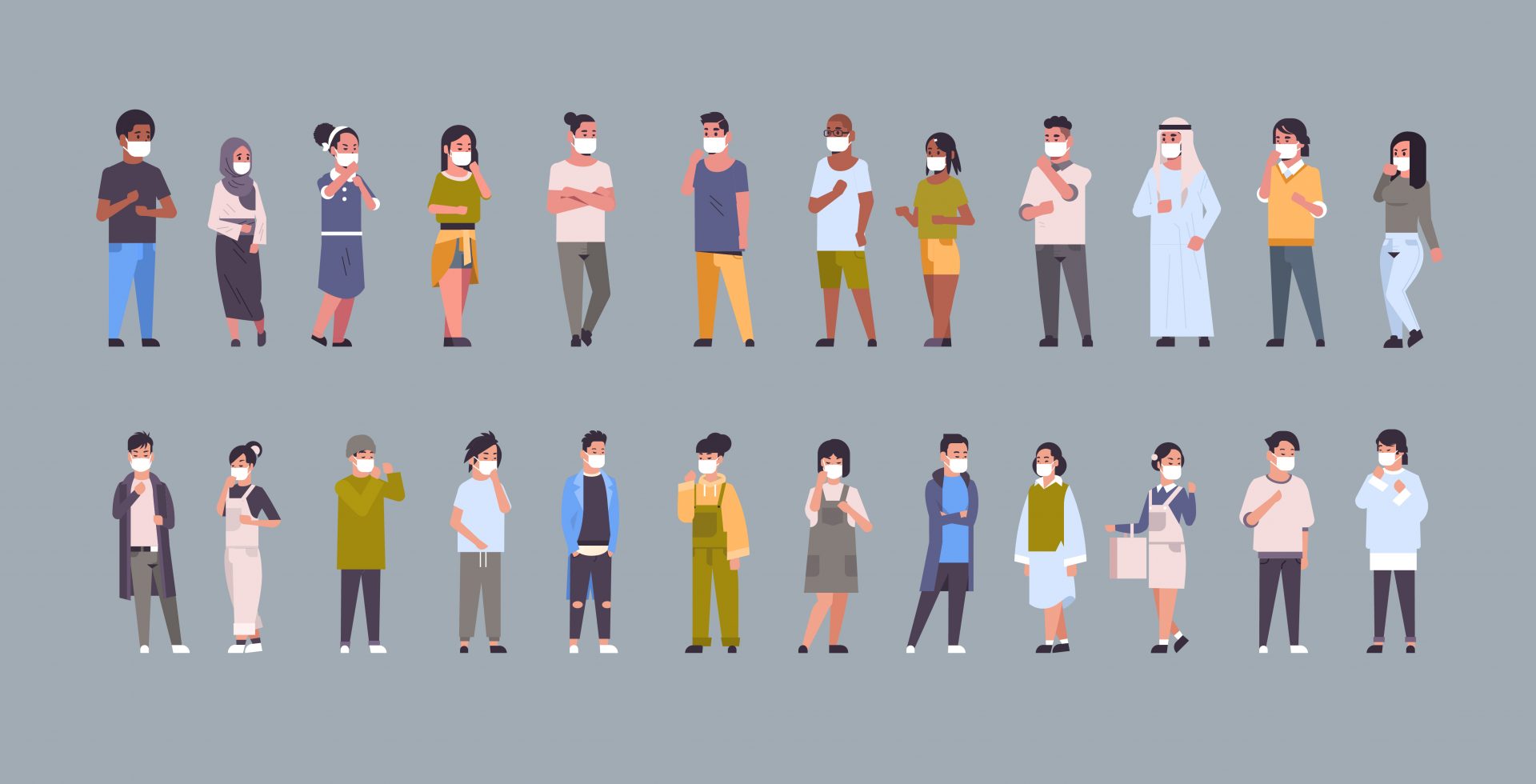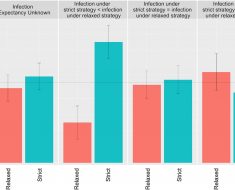Written by Amy Beecham
“Learning to live with the virus” is a phrase that has been bandied around by scientists and politicians alike. So what could that actually look like?
Over the past two years, so many aspects of our lives – from the health decisions we make to how we work, travel and socialise – have been impacted by the pandemic. Yet despite living alongside Covid-19 since early 2020, it’s natural for us still to have plenty of questions.
Now, the rules around what we can do and when may not change quite as unexpectedly as they once did, but there is still grounds for confusion, anxiety and concern over what the “new normal” that we’ve heard of will actually look like.
But there are some answers out there to our most burning questions. And while no one can predict exactly what lies ahead, the more recoveries made and data gathered on the virus, the more hope we can hold for a safe future.
How will we know when the pandemic is ending?
When the first case of SARS-CoV-2 was recorded in the UK on 29 January 2020, no one could have imagined how it would change our lives. So understandably, many of us continue to wonder when exactly the pandemic as we’ve known it will officially ‘end’.
As with so much of the information around what was a novel virus, meaning it had not previously been identified in humans, there is no clear timeline.
An Ipsos surveyfrom December 2021 found that there was no international consensus among the 33 countries asked on what specific event would signal the end of the Covid-19 pandemic.
On average, 20% said it would be when at least 75% of the global population have been vaccinated, with 19% claiming that it would be when transmission of the virus has completely stopped.
For 12% of nations, the most important indication would be when there are fewer than 10 new cases for every million people per day, however 14% said that they just don’t know.
While a lack of definitive answers may keep us feeling in the same limbo as the past two years, we can attempt to calm our anxiety about the future.
“Not knowing exactly what’s going to happen means it’s difficult to control what our responses are going to be,” Dr Peter Olusoga, a psychology lecturer at Sheffield Hallam University, previously told Stylist.
“It’s about trying to focus on what’s happening right now – in the moment,” explains Dr Olusoga. “That’s a really difficult thing to ask people to do when there’s so much information flying around and there’s so much worry and concern of what’s going to happen in the future, but if we can, try and focus on what’s important now and what’s happening now. It’s about staying present, and making decisions based on what needs doing in the moment. That’s the best way that we can maintain a little bit of a sense of control.”
Does living with Covid mean we’ll be working from home forever?
One of the biggest lifestyle changes has been a widespread shift to remote working, with nearly 60% of all British employees working from home during the first lockdown in 2020.
But are Zoom meetings and loungewear uniforms here to stay for the foreseeable?
“Not necessarily, but Covid has levelled challenges around work-life balance and has opened up conversations about boundaries,” Claire Ross, head of culture and engagement at business software provider at Advanced, tells Stylist.
“This has been brilliant for many different groups, like working parents and neurodiverse people. They’ve been able to work in a way that suits them and they don’t want to give that up – and nor should they.
“Living with Covid may mean that we keep working from home in the future, but that’s because we have opened our eyes to the potential of hybrid working, not because of the disease itself.”

“Hybrid working used to be a benefit – now it’s a core offer,” adds Alex Arundale, chief people officer at Advanced.
“It’s not up for discussion any longer; it’s the very minimum of expectations and that in itself has created a huge shift in how we work. We expect to see hybrid working become the norm but don’t be fooled that it’s easy: hybrid working is difficult to get right and none of us has tackled it at scale and for any length of time yet.
“There will be a further change in how we work, but it will be to do with how we make hybrid work for everyone. The office has a lot to offer and it’s time we fell back in love with it while staying flexible and giving people the respect and balance they need to thrive.”
How long will we feel the effects of Covid-19 for?
In December 2021, an estimated 1.3 million people in the UK were experiencing self-reported long Covid symptoms, which ranged from tiredness and an inability to sleep to loss of focus and mood changes through to changes in our heart rhythms, chest pain or a shortness of breath.
While encouraging new research by the UK Health Security Agency has found that vaccination reduces the risk of developing long Covid, and that current sufferers may experience an improvement in symptoms after getting jabbed, there is of course still much more investigation into the condition that needs to be carried out.
Last year, the government announced that £18.5 million is being invested into clinical research into long Covid to help guide future management of the condition.
Once again, while there is no definitive answer, the steps being taken towards better understanding and treatment of post-viral fatigue will come as a comfort to many of us.
What does ‘living with Covid’ mean practically for our day to day lives?
Some scientists believed that the Omicron variant’s relatively ‘mild’ effect on health – a sore throat, some flu- or cold-like symptoms, or no noticeable symptoms at all for those who are vaccinated – was a sign that SARS-CoV-2 was coming to an ‘end’.
Restrictions have been widely scaled down, and as countries look set to reopen their borders for international travel, there is certainly hope that the darkest days of the pandemic are ‘behind’ many of us.
However, for many of the 3.7 million clinically extremely vulnerable (CEV) people in the UK, plans announced by the prime minister to remove the requirement to self-isolate at the end of March – and last month’s lifting of the compulsory face mask rule – is a cause for great concern. Indeed, the threat the virus poses to people in this group remains incredibly high, and many are still at risk of becoming seriously ill or dying as a result of catching the virus.
“Two years ago we had nothing,” Dr Matthias Schmid, head of infectious diseases at the Royal Victoria Infirmary, who treated the UK’s first Covid patient at the end of January 2020, told the BBC.
“Now we have a range of treatments available which reduce the severity and prevent death in a huge number of patients.”

Encouragingly, while at the beginning of the pandemic there were no drugs to treat Covid-19, as the treatments develop, fewer patients are becoming seriously ill or dying.
The combination of effective vaccines and targeted medicines such as cheap anti-inflammatory steroid dexamethasone are considered able to keep Covid in check and allow the NHS and society to plan for a future no longer dominated and disrupted by coronavirus.
However, Covid will not disappear completely. But a combination of widespread vaccination and new drug treatments should enable us to effectively manage any future outbreaks or emerging variants.
We’re all just trying our best to keep ourselves, and everyone else, safe while prioritising our mental health and carrying on with our lives to the best of our abilities.
Images: Getty
Source: Read Full Article





